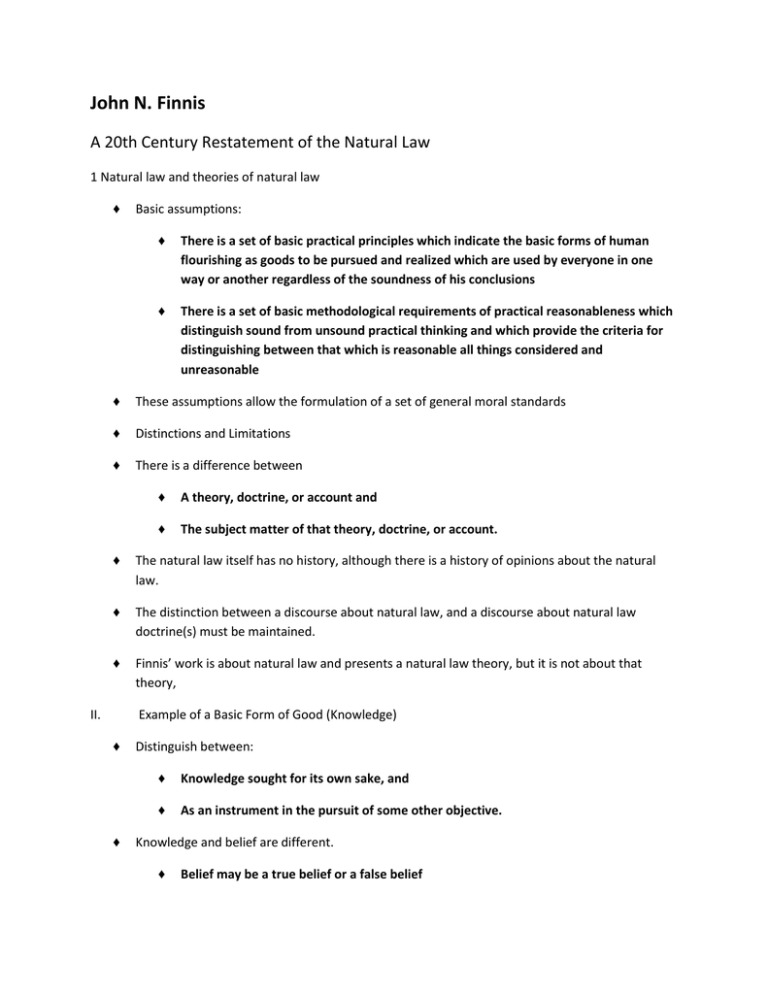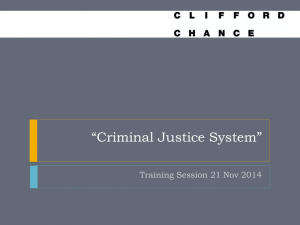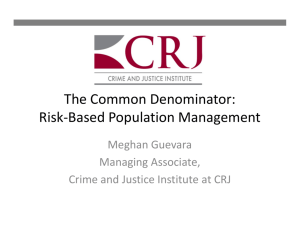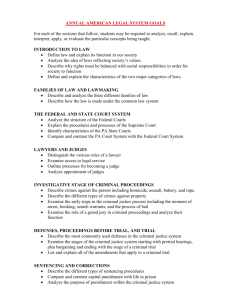Natural Law and Natural Rights
advertisement

John N. Finnis A 20th Century Restatement of the Natural Law 1 Natural law and theories of natural law ♦ Basic assumptions: ♦ There is a set of basic practical principles which indicate the basic forms of human flourishing as goods to be pursued and realized which are used by everyone in one way or another regardless of the soundness of his conclusions ♦ There is a set of basic methodological requirements of practical reasonableness which distinguish sound from unsound practical thinking and which provide the criteria for distinguishing between that which is reasonable all things considered and unreasonable ♦ These assumptions allow the formulation of a set of general moral standards ♦ Distinctions and Limitations ♦ There is a difference between ♦ A theory, doctrine, or account and ♦ The subject matter of that theory, doctrine, or account. ♦ The natural law itself has no history, although there is a history of opinions about the natural law. ♦ The distinction between a discourse about natural law, and a discourse about natural law doctrine(s) must be maintained. ♦ Finnis’ work is about natural law and presents a natural law theory, but it is not about that theory, II. Example of a Basic Form of Good (Knowledge) ♦ ♦ Distinguish between: ♦ Knowledge sought for its own sake, and ♦ As an instrument in the pursuit of some other objective. Knowledge and belief are different. ♦ Belief may be a true belief or a false belief ♦ Knowledge is of truth, and is therefore an achievement-word. ♦ Thus seeking after knowledge is to seek after truth. ♦ Truth is not a mysterious abstract entity, rather it is what we need to know in order to make rational judgments. ♦ Truth, like knowledge, may be sought either: ♦ Instrumentally (in order to accomplish something else), or ♦ Out of curiosity (simply to know for the sake of knowing.) III. That Knowledge is Good is Self-Evident ♦ The good of knowledge is self-evident; it cannot be demonstrated, but equally needs no demonstration as it is obvious to all. ♦ The value (goodness) of truth (knowledge) is not innate, but is learned from attempting to satisfy curiosity with correct answers, and understanding the differences between true and false answers. IV. Theoretical Studies of Other Basic Values ♦ ♦ Problems with current literature (thought) ♦ Arbitrary & implausible reductions of many basic values to one or two or ? ♦ Creation of incoherent lists of basic values based on shifting criteria ♦ Insufficient analysis of the proposed basic values or tendencies. To overcome such problems, recall the distinction: ♦ Between an urge (instinct?) and the good which can be realized by fulfilling it. ♦ Between the material conditions for pursuit of the value and the value itself ♦ Between basic values and particular goals (ends & means). ♦ Basic Values at this point do not equal moral value. ♦ The Basic Forms of Good (by Finnis) ♦ Life ♦ Self-preservation ♦ Health (mental & physical) ♦ Procreation (in the sense of simple transmission of life) ♦ Knowledge (for its own sake, not instrumentally) ♦ Play (a performance done simply for its own sake) ♦ Aesthetic Experience (beauty) ♦ Sociability (friendship) ♦ Practical Reasonableness (freedom, intelligence, reasonable order, external and internal aspects) ♦ Religion (ritual?) ♦ VI.8 The Common Good ♦ Not utilitarian “greatest good for greatest number.” ♦ Kinds of “Common Good” ♦ Factors: A set of factors which create voluntary cooperation between persons in the community, each to achieve their own goals. ♦ Human: ♦ ♦ There is a common good insofar as achieving the basic goods of life are good for any and every person. ♦ Each of the basic goods are a common good insofar as they can be participated in by infinite people in infinite ways or on an infinite variety of occasions. General Conditions: Which enable each ommunity member to attain their own reasonable objectives & values by collaboration with others. ♦ Another way of saying “the General Welfare.” ♦ X.1 Law & Coercion ♦ The claim of law & legal systems to the authority to direct, validate, or prohibit human activity is implausible unless the subjects believe that compliance will not leave them subject to danger of internal or external assaults or depredations. ♦ The authority of the law depends on: ♦ Its justice, or ♦ Its ability to secure justice (sometimes by force). ♦ Effectiveness does not necessarily equate to Justice. ♦ The need for legal coercion may lie in: ♦ Recalcitrance of the selfish or cruel or other mean reasons, or ♦ High-minded, conscientious opposition to the law. ♦ X.1 Law & Coercion (cont.) ♦ Lawful coercion may be by way of: ♦ Self-defense, self-help, civil judicial processes and the like, or ♦ Criminal sanctions (punishment) ♦ The justifying objective of the criminal law is to see that certain acts or omissions occur less frequently than they otherwise would. ♦ Almost every member of society must be taught the requirements of the law, and the most effective way to do so is by the drama of apprehension, trial, and punishment of lawbreakers. ♦ Criminal sanctions are necessary in order to restore and maintain a rational order of preportionate equality (fairness) between all members of society. ♦ X.1 Law & Coercion (cont.) ♦ Punishment, then, seeks to restore the distributively just balance of advantages between the criminal and the law-abiding. ♦ Punishment restores fairness by depriving the criminal of the gain of his criminal act - his exercise of free-will to the detriment of the community ♦ There is no absolute measure of just punishment ♦ One who acts criminally harms the community and himself ♦ Punitive sanctions, therefore, should also work to restore the criminal, and reform him, so that he can lead a good and useful life.







